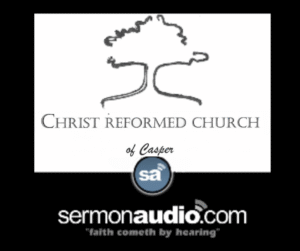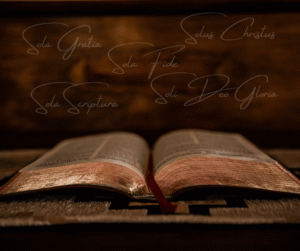LORD’S DAY 16
40. Why was it necessary for Christ to suffer “death”?
Because the justice and truth1 of God required that satisfaction for our sins could be made in no other way than by the death of the Son of God.2
[1] Gen. 2:17. [2] Heb. 2:9; *Rom. 6:23.
41. Why was He “buried”?
To show thereby that He was really dead.1
[1] Matt. 27:59–60; Jn. 19:38–42; Acts 13:29.
42. Since, then, Christ died for us, why must we also die?
Our death is not a satisfaction for our sin, but only a dying to sin and an entering into eternal life.1
[1] Jn. 5:24; Phil. 1:23; Rom. 7:24–25.
43. What further benefit do we receive from the sacrifice and death of Christ on the cross?
That by His power our old man is with Him crucified, slain, and buried;1 so that the evil lusts of the flesh may no more reign in us,2 but that we may offer ourselves unto Him a sacrifice of thanksgiving.3
[1] Rom. 6:6–8; Col. 2:12. [2] Rom. 6:12. [3] Rom. 12:1; *2 Cor. 5:15.
44. Why is it added: “He descended into hell”?
That in my greatest temptations I may be assured that Christ my Lord, by His inexpressible anguish, pains, and terrors, which He suffered in His soul on the cross and before, has redeemed me from the anguish and torment of hell.1
[1] Isa. 53:10; Matt. 27:46; *Ps. 18:5; 116:3.
Lord’s Day #15 taught us that Christ suffered in body and soul the penalty due to mankind for our sin and rebellion against God. In Genesis 2:17 God told Adam that on the day he eats of the Tree of the Knowledge of Good and Evil he would surely die. Adam surely did die as a consequence of his disobedience, for God cannot lie. The first few Lord’s Day articles showed us how that death plays out in Adam and Eve and in the human race in general. It is the source of all our misery, so that the terror of death hangs over the human race perpetually. The knowledge of God’s justice and the guilt of our own sin is inborn, and that knowledge is the driving force behind man’s self-destructive behavior.
If Jesus did not actually die, then my sin and guilt remain. God is true and just, and man must die for his sin. He must die to the uttermost. So Jesus, our substitute, died, and He died to the uttermost. His cry to His Father on the cross shows what death is, being forsaken and abandoned by God, our source of life. How it is possible for the second Person of the Trinity to experience such a thing, even only in His humanity, is a mystery that will remain unsolved until eternity, if even then. Nonetheless, we know it happened, for the Scriptures record for us the truth. He was cut off from the land of the living, cut off even from His Father.
He died for His people, and we know He did because He was innocent, and thus did not die for His own sins. His resurrection proves His innocence, that He is approved of God. With that witness, I can know that my sin is paid for to the uttermost.
The death that hangs over the human race need no longer terrify the one who knows he is redeemed in Christ. I need never fear having my own life torn away from me. I do not have to live with the dark cloud of impending doom lurking in the future. I need not fear the judgment of God crashing down on me in full force, revealing all my shame and guilt and separating me forever from all life, from all that is good which comes from Him alone. I will never face being torn away from my Father as He was.
We still die, of course, but only in a physical sense. The death we experience as believers is but a small shadow of that death promised to Adam, just the last remnant of the curse falling away from us, as our sin-corrupted bodies finally fall into the ground, like seed to be reborn into something far more glorious in the age to come.
The sentence is executed, the guilt of sin is punished, and the law is satisfied. Our life in Christ, therefore, is the fading away of the power and the guilt of sin. The stink of the grave is still on us; all believers will still wrestle with sin in their lives, but no longer does that slavery define us as it would outside of Christ. As question 43 tells us, the sentence of death is executed not only against Christ on our behalf but against the old sinful nature as well, so that having died with Him we can also rise from the dead with Him, and our new life in Christ is then the becoming of what we are. We can begin to put away sin, to have our eyes opened to the truth of what a human being really is created to be, and to start being that.
The death of Christ is a great victory for Christ and for the believer. Only because He underwent that trial and descended all the way to the grave on our behalf is the believer’s hope secure. He died, and therefore we live.


Comments are closed, but trackbacks and pingbacks are open.